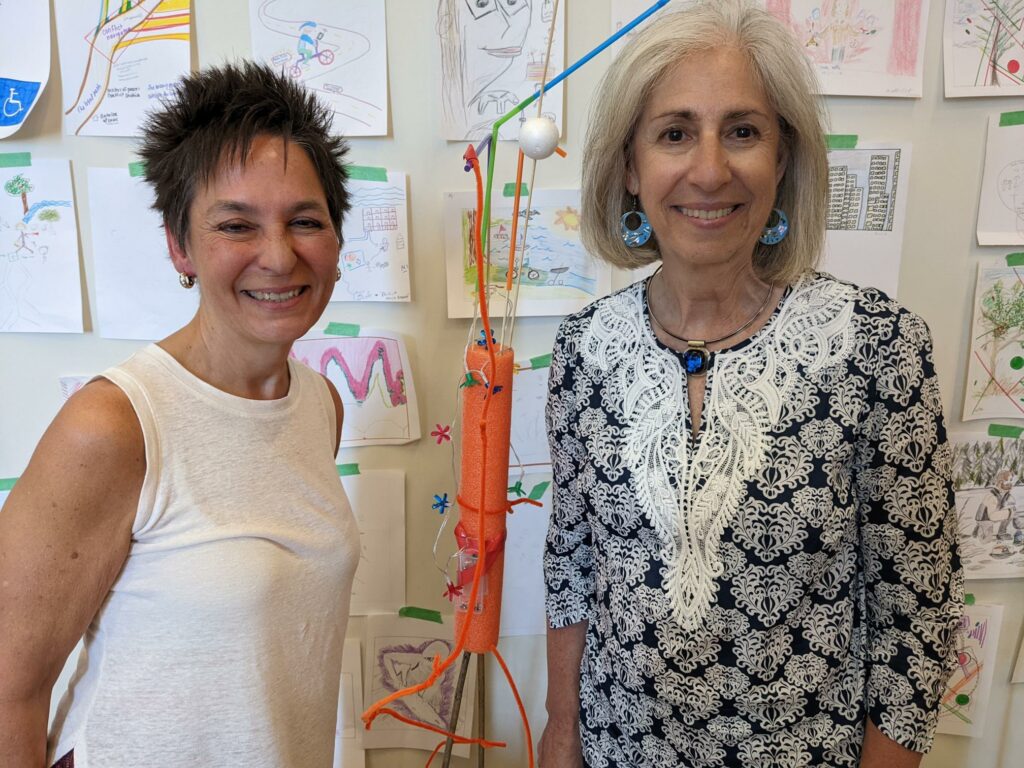
Sometimes, some of the best lessons involve “unlearning” old ones. That’s what a group of 15 lawyers discovered recently in a unique course offered by Osgoode Professional Development (OsgoodePD), a division of Osgoode Hall Law School at York University.
The arts-based course, ALDR 6307: Creativity and Collaboration in Practice: Essential Skills for the 21st Century Practitioner, sends students on a five-day creative journey on their way to achieving their Professional LLM in Dispute Resolution or another Professional LLM discipline. For many, it was the first in-person course they had taken in two years, with some travelling from as far away as Vancouver, Edmonton and Winnipeg. The day-long sessions ran June 20-24 at Osgoode Hall Law School’s downtown Toronto campus.
“I waited for this course,” said Vancouver litigation lawyer and mediator Colleen E. Selby, who practices in the areas of contentious wills, trusts, estates and insurance law.
“This is a super creative way of teaching us different ways of seeing how to deal with conflict, which translate into how we conduct ourselves in our practices,” she added. “It’s expanding our repertoire of listening, understanding and helping other people.”
In the process, said Selby, students have to unlearn some traditional adversarial attitudes that have been ingrained through years of legal training and practice – opening themselves to new, innovative ways to resolve disputes.
In a sense, said Toronto lawyer Antonio Villarin, students in the course learn a new language of conflict resolution through a series of exercises involving drawing, collage-making and music. The course culminates in a mock mediation based on a business scenario.
In one “Star Wars” exercise, for example, students play the role of interplanetary castaways who must work in teams to build a device capable of sending a distress signal into the cosmos. The catch? They can only communicate with each other using rattles, cymbals, cowbells and triangles to build the device using the provided materials. In another activity, a performance by a jazz singer and bassist is the jumping-off point for an in-depth discussion about the dynamics of improvisational music and mediation.
“Everything we talk about here is in the language of music and art,” said Villarin. “We learn things you can bring into client relations and problem analysis. It makes you change yourself.”
The creators and teachers of the course are Toronto family law lawyer and classical pianist Linda Ippolito and retired Ontario Superior Court associate judge Joan Haberman, who now works as a full-time fine artist. Ippolito also holds a PhD in conflict resolution from Osgoode Hall Law School and is the author of the 2019 book Music, Leadership and Conflict: The Art of Ensemble Negotiation and Problem-Solving (Palgrave McMillan).

Along with the course, the two instructors share a friendship that goes back almost 30 years to when Haberman, then working for the Crown law office in the Ontario Ministry of the Attorney General, hired Ippolito as an articling student.
Ippolito said it is rare in legal education – if not unheard of – for a course to be entirely arts-based and to focus on creative and collaborative skills. But prospective students beware, she warns: This is no “bird” course. The workload and reading list are robust – and breaking down old notions doesn’t come easily.
“The idea is if you can see with new eyes and hear with new ears, you can bring new dimensions to your practice,” she explained. “That’s what the course is about: re-examining who we are, what we do and how we do it.”
“One of the course mantras is you have to interrupt patterns, sit with discomfort and dance with surprise,” she added, quoting a 2006 book on the course reading list, Conflict Across Cultures: A Unique Experience of Bridging Differences.
One skill the course endeavours to develop is “deep observation,” said Haberman. “The better you’re able to use your powers of observation,” she said, “the better you’re able to understand what’s going on around you.”
The two teachers describe their role in the course as “subversives” who are giving their lawyer-students permission to play again.
“You watch these adults go into play time and it’s just wonderful,” said Haberman. “We’re giving them skills for professional reasons, but also skills for life.”
In the process, added Ippolito, they hope their lawyer-students will leave the course with an entirely new outlook on their work.
“We want to give them their crayons back,” she said. “That’s what this is about: Can we change the conflict culture one lawyer at a time?”
